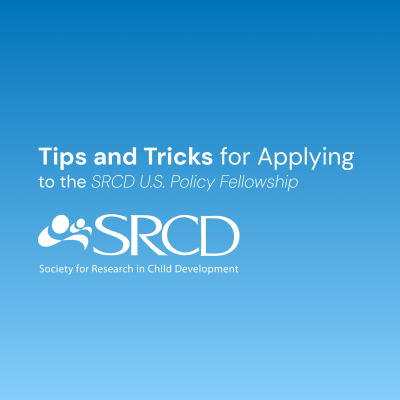Coding as a Developmental Playground: Computational Thinking and Robotics in Early Childhood
A University-Based Child and Family Policy (CFP) Consortium webinar held in collaboration with SRCD.
Dr. Marina Umaschi Bers is a professor at the Eliot-Pearson Department of Child Study and Human Development and the Computer Science Department at Tufts University. She heads the interdisciplinary Developmental Technologies research group. Her research involves the design and study of innovative learning technologies to promote children’s positive development.
In this webinar, Dr. Bers presented an overview of her interdisciplinary research program by using the metaphor of playgrounds vs. playpens to understand the role of technology in children’s lives. Playgrounds are popular spaces for young children to play and learn. They are designed to promote exploration of the physical environment and the development of motor and social skills. Young children can be autonomous while developing different sets of competencies. Playpens, in contrast to playgrounds, corral children into a safe, confined space. Although they are mostly risk-free, there is little exploration and imaginative play. From a developmental perspective, the playground promotes, while the playpen hinders, a sense of mastery, creativity, self-confidence, social awareness and open exploration. This webinar used the playpen/playground metaphor to explore the role of coding and computational thinking for young children. Dr. Bers introduced a framework of powerful ideas of computer science and engineering that are developmentally appropriate for young children and will provide examples involving the two environments she created, the free Scratch Jr programming language and the screen-free KIBO robotic kit that can be programmed with wooden blocks. The webinar also covers ideas from her recent book “Coding as a Playground” where she argues that coding should be seen not only as a technical skill but as a new literacy—a new way for children to express and share their ideas. As a literacy, it carries power to change the world.


